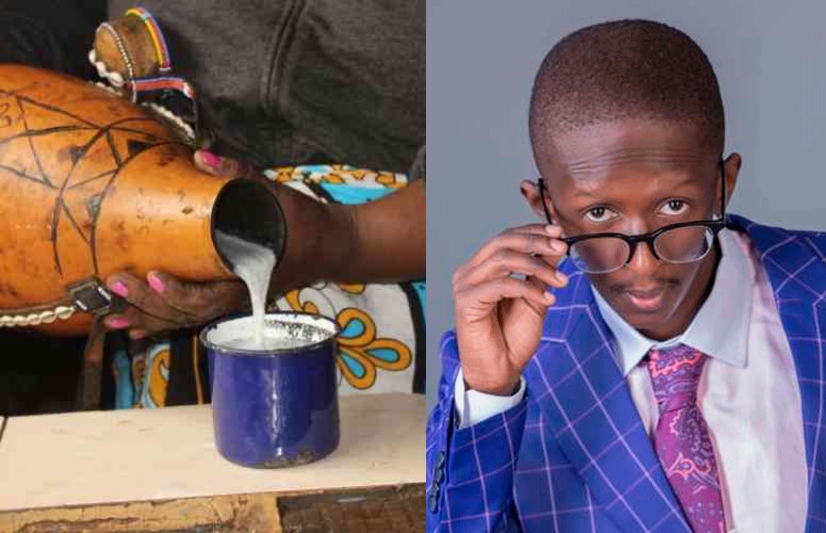In a bold and hilarious critique of Kenyan cuisine, comedian Njugush has taken the December Festive challenge by storm, questioning the taste of beloved dishes from various communities.
His light-hearted jabs at traditional meals have left many chuckling while sparking a friendly debate around the country’s diverse culinary preferences.
Njugush didn’t hold back when discussing Mursik, a fermented milk favored by the Kalenjin community.
“Mursik si tamu,” he declared, referring to its notoriously strong flavor and the preparation methods that have left many wondering about its digestibility.
“Watu wa Mursik tuambiane ukweli. Huwa twanywa ndipo msitulaani. Ina-taste kama vibaya. Huwa mnaweka makaa kwa maziwa ndipo yaivie kwa tumbo?” Njugush quipped, using humor to lighten the critique.
Not one to stop there, Njugush turned his attention to the Swahili community, taking aim at their adoration for Mbaazi, a traditional meal of pigeon peas.
“Mbaazi si tamu! Watu wa Mombasa, mbaazi si tamu. Huwa mwajifanya ni tamu na si tamu,” he pointed out, suggesting that the only culinary masterpiece from the coastal city is fried fish.
He continued with a tongue-in-cheek take on Mahamri – sweet, spiced doughnuts that often accompany tea.
“Mahamri ni andazi imewekwa iliki… Hicho kitu huwa si kitamu,” he remarked, playfully challenging the need to repurpose ingredients in a dish he perceives as less than enjoyable.
“Eti unapasua andazi unaweka maharagwe ndani, si basi mtafute paper bag tunyonye,” he joked.
The comedian’s roasting didn’t stop with coastal delicacies; he also had a comedic take on the culinary habits of the Abagusii community.
He poked fun at their hearty breakfast spread.
“Kisii mlikataa kuwa watu normal. Unakula breakfast lakini kuna ugali ya brown, white, saga na kila kitu. Mnakula ni kama ni festival,” he remarked.
Njugush questioned why such mountains of food are necessary, concluding with a humorous suggestion to reconsider lunchtime habits.
However, it wasn’t all critique – Njugush was generous with his praise for the Kikuyu community, lauding their culinary talents.
“Watu wa Mlima mko sawa. Ushawahi kula Njahe imewekewa watermelon juu?” he exclaimed, celebrating the rich flavors and combinations that Kikuyus are known for.
He saved a playful nudge for the Kamba community too, particularly their tendency to boast about mangoes that hardly ever reach wider circles.
“Wakamba, tunaongelea chakula. Maembe doesn’t count. Ni Rafiki wangapi Wakamba tunao na huwa hawatufikishii maembe? Maembe ni jina tu,” he quipped.
Njugush’s lively commentary showcases the vibrant array of Kenyan cuisine, serving as a reminder that while food may vary in taste and preference, it undeniably fuels the joy, humor, and camaraderie of diverse cultures.
Whether his critiques spark a friendly culinary competition or simply provide laughter, one thing’s for certain: Njugush knows how to stir up a delicious conversation.

